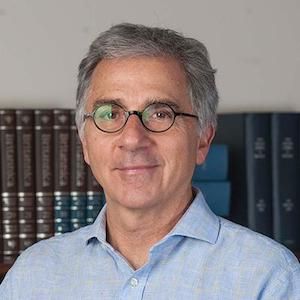Article
Stem Cell Therapy Restores Insulin Production in Patients with Type 1 Diabetes
Author(s):
VX-880 stem cell-derived therapy demonstrated restoration of insulin production and was generally well-tolerated in T1D treatment.
Doug Melton, PhD

A 64-year old man may have become the first person to be cured of type 1 diabetes (T1D), the result of a cell-infusion grown from stem cells similar to insulin-producing pancreas cells
Back in June, Brian Shelton received the infusion in a clinical trial by Vertex Pharmaceuticals, Inc.
They were testing a decade-in-the-making treatment started by a scientist, Doug Melton, PhD, Xander University Professor at Harvard and Investigator of the Howard Hughes Medical Institute, whose own family was impacted by the disease.
Today, Shelton’s body automatically controls insulin and blood sugar levels, representing a huge leap forward in the treatment of T1D. Previously, the only cure that has been known to work is a pancreas transplant or a transplant of islet cells from an organ donor’s pancreas.
Similarly to patients who get pancreas transplants, Shelton is required to take immunosuppressants so his body will not reject the infused cells, which he claims give him no side effects.
Some experts urged caution, as the research is not yet published in a peer-reviewed journal and is based on a single result and needs to be replicated further. The study will continue for 5 years and include 17 patients with severe T1D.
The Study
The positive 90 day results were announced by Vertex Pharmaceuticals, Inc. from the Phase ½ clinical trial of VX-880.
VX-880 is the investigational stem cell-derived, fully differentiated pancreatic islet cell replacement therapy for people with T1D. The patient was treated with a single infusion of VX-880 at half the target dose through a hepatic portal vein infusion, together with immunosuppressive therapy.
It was noted that in the year prior to treatment, the patient experienced a total of 5 severe, potentially life-threatening hypoglycemic episodes.
Before VX-880 treatment, the patient’s insulin dose was 34 units per day, while fasting and stimulated C-peptide levels could not be detected, showing the patient was not making insulin.
At various intervals, through Day 90, fasting C-peptide, HbA1c, and 7-day average insulin daily dose was measured. Data show fasting C-peptide was detected early into the treatment course and increased rapidly to Day 90. On the other hand, HbA1c and daily insulin dose decreased over time.
They evaluated islet cell function at baseline and then, at Day 90 using a Mixed Meal Tolerance Test (MMTT) with quantification of C-peptide levels.
Data show at day 90 after VX-880, fasting C-peptide was 280 pmol/L and increased after MMTT stimulation to a peak of 560 pmol/Lm indicating the agent restored glucose-responsive insulin production
Additionally, at day 90, HbA1c improved from 8.6% at baseline to 7.2%, while daily insulin dose decreased from 34 units per day prior to an average of 2.9 units per day over a week at the day 90 visit. This reflected a 91% decrease in daily exogenous insulin use.
No serious adverse events (SAE) were considered related to VX-880.
Reaction
In a statement, James Markmann, MD, Professor of Surgery and Chief of the Division of Transplant Surgery at Massachusetts General Hospital, noted his excitement to progress the potential of transformative medicine through clinical trials.
“As a surgeon who has worked in the field of islet cell transplantation for decades, this approach, which obviates the need for an organ donor, could be a game changer,” Markmann said.
Additionally, Melton discussed the hope he feels stemming from these results.
“More than a decade ago our lab had a vision for developing an islet cell replacement therapy to provide a functional cure to people suffering from T1D,” Melton said. “These promising results bring great hope that stem cell-derived, fully differentiated islet cells could deliver a life-changing therapy for people who suffer from the relentless life-long burden of T1D.”
The company will continue the phase ½ program for VX-880, with multiple active sites in the United States and an approval of the Clinical Trial Application in Canada.




